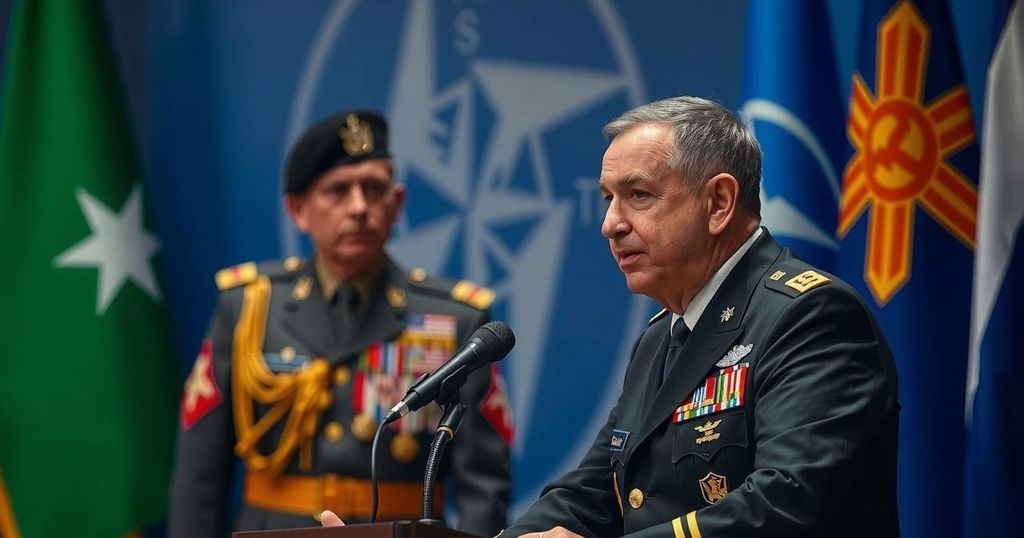NATO Chief Warns Trump Against Weak Ukraine Peace Deals Empowering Authoritarian Regimes

NATO’s chief Mark Rutte has warned President-elect Trump that a forced weak peace agreement for Ukraine could empower adversarial nations like China, Iran, and North Korea. Rutte expressed that inadequate support for Ukraine would threaten global security and expressed concerns about the repercussions of these authoritarian regimes capitalizing on such agreements. The ongoing discourse on Ukraine’s NATO membership and military support continues amidst a backdrop of shifting foreign policy attitudes in the US and UK.
Mark Rutte, the Secretary-General of NATO, has issued a caution to US President-elect Donald Trump regarding the potential ramifications of imposing an inadequate peace settlement on Ukraine amidst its ongoing conflict with Russia. In a conversation with The Financial Times, Rutte articulated that such a peace agreement could not only jeopardize Ukraine but also instigate serious risks to global security, emboldening authoritarian states such as China, Iran, and North Korea. He asserted that these nations have been increasingly cooperating on military and economic fronts, and a compromised settlement could present them with an advantageous scenario. Rutte stated, “We cannot have a situation where we have Kim Jong-un and the Russian leader and Xi Jinping and Iran high-fiving because we came to a deal which is not good for Ukraine.” He further emphasized that such an outcome would elevate security threats for both Europe and the United States. Rutte’s warnings coincided with a recent meeting between Trump and his foreign policy advisors, highlighting the complexity of the international implications of the Ukraine conflict.
On the political front, UK Prime Minister Keir Starmer recently acknowledged the likelihood of a negotiated settlement to the Russo-Ukrainian war, which occurred alongside President Biden’s announcement of a new military aid package for Ukraine. Trump’s aides have suggested that the conflict is primarily a European issue, advocating for a strategic focus on China and Iran over the matter of Ukraine. Additionally, Ukrainian leadership, including President Zelenskyy, has firmly stated that Ukraine seeks full NATO membership, particularly following the inadequacies of the Budapest Memorandum. This prevailing sentiment indicates that Ukraine will not settle for anything less than robust international assurances against Russian aggression.
The ongoing conflict between Ukraine and Russia has led to significant geopolitical shifts and concerns regarding global security. The discussions surrounding potential peace agreements are deeply intertwined with the international alliances and rivalries among global powers. NATO, as a defensive alliance, remains vigilant about the implications of how the Ukraine situation evolves, particularly with respect to authoritarian regimes in China, Iran, and North Korea. Furthermore, Ukraine’s aspirations for NATO membership are seen as critical to its security, especially in light of Russia’s aggressive posture.
In conclusion, NATO’s Secretary-General Mark Rutte has underscored the precarious balance of power that could be disrupted by a weak peace settlement in Ukraine. His remarks illustrate the interconnectedness of various global threats posed by authoritarian regimes should Ukraine’s sovereignty be undermined. As geopolitical tensions rise, the consensus among Western allies appears to favor a robust approach to Ukraine’s defense, highlighting the necessity of inclusive international agreements that ensure long-term stability in the region.
Original Source: euromaidanpress.com






